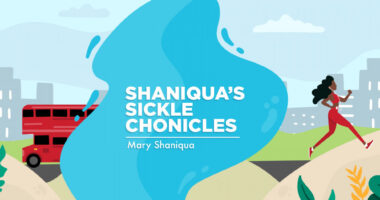Endari Sickle Cell Therapy Now Under Review in Saudi Arabia

The Saudi Food and Drug Authority (SFDA), in Saudi Arabia, will review Emmaus Life Sciences’ application for the approval of its oral medication Endari (L-glutamine) for treating sickle cell disease (SCD).
Given that the SFDA’s review process typically takes 12 to 18 months, a decision is not expected before mid- to late-2022. Meanwhile, Endari will be available to eligible SCD patients in the Kingdom of Saudi Arabia on an early access basis to address an unmet medical need.
Up to 1.4% of the 35 million people living in Saudi Arabia — nearly a half million patients — are thought to have SCD. Moreover, Emmaus estimates that 225,000 SCD patients throughout the Middle East and North Africa — a region known as MENA — are reachable and could potentially be treated with Endari.
“This submission and acceptance of our marketing authorization application by the Saudi Food & Drug Authority is another significant step in our progress and commitment to serve sickle cell disease patients in the MENA region,” Yutaka Niihara, MD, Emmaus’s chairman and CEO, said in a press release.
“We look forward to continue building and enhancing our relationships with the hematologists and patient advocacy groups in the Kingdom of Saudi Arabia,” said George Sekulich, senior vice president of Emmaus’ global commercialization.
“Emmaus is also working with clinicians on providing Endari on a named-patient basis in the Kingdom and the wider MENA region,” Sekulich added.
Endari was approved in the U.S. in 2017 to treat severe SCD complications in adults and children, ages 5 and older. Through the Endari Support Program, it also is available at low or no cost to eligible patients who lack insurance coverage or the financial means to afford treatment.
The medicine gained approval in Israel in June 2020.
In Europe, Emmaus withdrew its regulatory application for Endari in 2019 after a branch of Europe’s regulatory agency recommended against its approval due to a negative opinion of treatment efficacy.
Last year, the company received guidance from the European Medicines Agency regarding the recommended clinical development path for Endari — to be sold under the brand name Xyndari in Europe — to pursue regulatory approval. Xyndari currently is available through early access programs in a number of European Union member states, as well as in Turkey, the Middle East, and South America.
Administered in the form of an oral powder, Endari works by increasing the levels of L-glutamine, an amino acid — the building blocks of proteins — that can be used by red blood cells to produce antioxidant molecules. These molecules help neutralize the damaging effects of oxidative stress, which is increased in the red blood cells of SCD patients and contributes to their stiffness and characteristic sickle-like shape.
Oxidative stress results from an imbalance between the amount of oxygen-related toxic molecules and the levels of counteracting antioxidants in blood cells. This imbalance leads to cellular damage.
As such, Endari is thought to help red blood cells regain flexibility, and improve their ability to transport oxygen throughout the body.
The therapy’s safety and effectiveness were evaluated in a Phase 3 clinical trial (NCT01179217) involving SCD patients, ages 5–58, who had two or more painful vaso-occlusive crises in the year prior to enrollment. The participants were randomly assigned to receive either Endari or a placebo for 48 weeks, or nearly a year.
The results showed that Endari-treated patients had fewer hospital visits for pain treated with injectable or into-the-vein pain killers, fewer hospitalizations for sickle cell pain, and shorter hospital stays, as compared with those given a placebo.
Those given Endari also had fewer occurrences of acute chest syndrome, a serious complication of SCD, compared with patients treated with the placebo (8.6% vs. 23.1%).
The therapy was generally safe and well-tolerated, with the most common side effects including constipation, nausea, headache, abdominal pain, cough, and pain in the legs, arms, hand and feet, and back and chest.
Its safety profile also was confirmed by an APCER Life Sciences’ report based on data from SCD patients taking the medication from July 7, 2017, to April 6, 2020.






